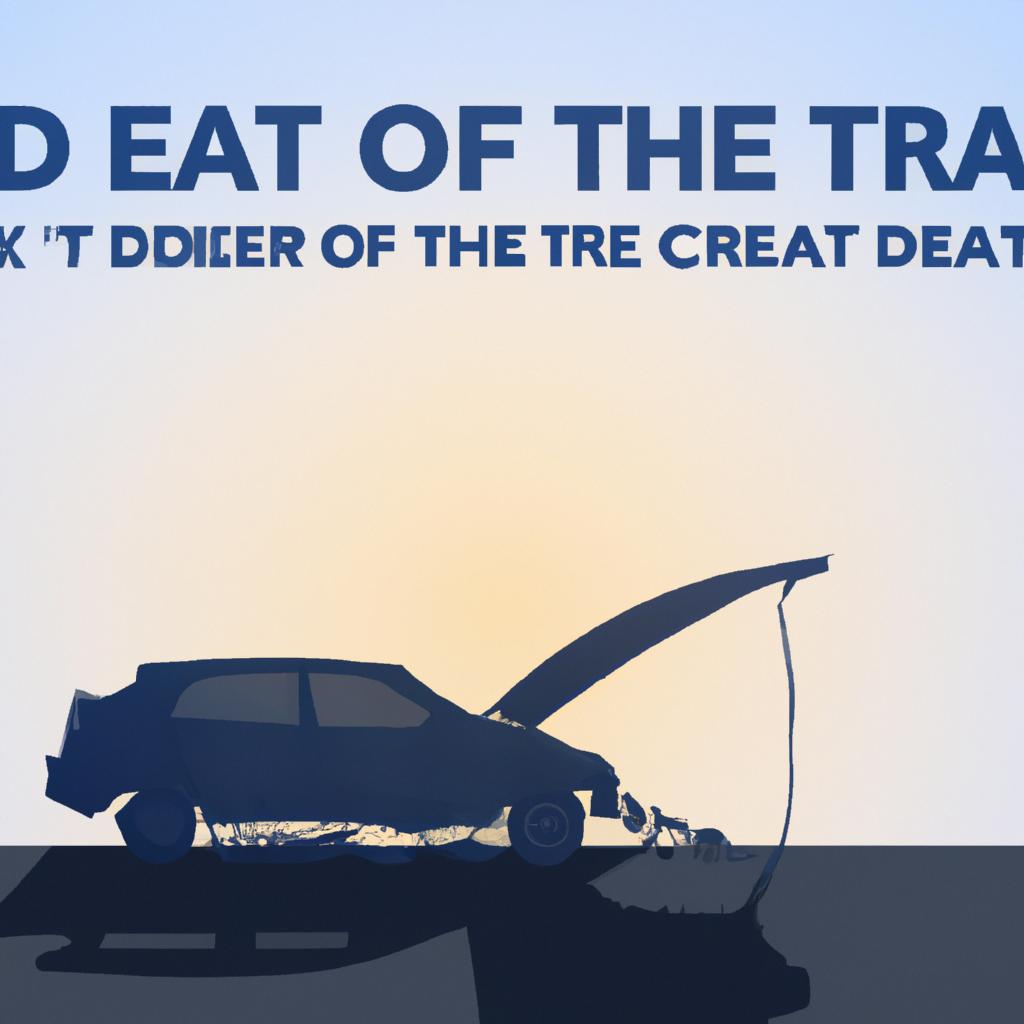When a person’s life comes to an end, there are various matters to consider, one of which may be the fate of a leased car. This situation can bring about uncertainty for the loved ones left behind to handle the aftermath. In this article, we will delve into the topic of what happens to a leased car when the lessee passes away, and how their estate can manage the situation in a respectful and efficient manner.
Understanding the Terms and Conditions of the Lease Agreement
In the event of a person’s passing, the future of their leased car may be ambiguous. It is crucial to carefully examine the lease agreement terms and conditions to gain insight into the subsequent steps. Here are some common scenarios that may unfold:
Transfer of Lease: In some instances, the lease agreement may permit the transfer of the lease to a family member or executor of the deceased person’s estate. This process can be relatively smooth, but it is essential to inform the leasing company and adhere to their specific procedures.
Early Termination: If the lease agreement does not allow for transfer, the lease may need to be terminated prematurely. This could result in fees and penalties, making it important to thoroughly review the terms of the agreement to comprehend the financial implications.
Return of the Vehicle: If the lease cannot be transferred and early termination is not an option, the leased vehicle may need to be returned to the leasing company. This typically involves arranging for the vehicle to be inspected and returned to a designated location.
It is imperative to communicate with the leasing company as soon as possible to discuss the situation and determine the best course of action for navigating this challenging situation.
Options for Handling the Lease After the Lessee’s Death
Upon the unfortunate event of a lessee’s death, there are several options available for handling the lease of the vehicle. One possible avenue is for the executor of the lessee’s estate to take over the lease. This would involve the executor contacting the leasing company to discuss the next steps in transferring the lease under the estate’s name.
Another option is for the family members of the deceased to continue the lease themselves. This would require them to contact the leasing company and explore the possibility of transferring the lease into their name, potentially undergoing a credit check in the process.
Alternatively, the family members or executor can opt to return the leased vehicle to the leasing company, navigating the process of returning the vehicle in good condition and handling any potential fees or penalties associated with early termination of the lease.
Recommendations for Executors and Family Members
When a loved one passes away, one of the many tasks that fall to the executor and family members is dealing with the deceased’s assets, including any leased vehicles. It is important to understand what happens to a leased car when someone dies to avoid any potential issues or confusion.
Here are some recommendations:
Review the lease agreement: Begin by thoroughly reviewing the terms of the lease agreement to understand the available options in the event of the lessee’s death.
Contact the leasing company: Reach out to the leasing company as soon as possible to inform them of the lessee’s passing and discuss the next steps. They will be able to guide you on how to proceed.
Consider your options: Depending on the terms of the lease agreement, you may have the option to continue the lease, transfer it to another individual, or return the vehicle. Evaluate what makes the most sense for your situation.
Option Description
Continue Lease You may choose to continue making lease payments and keep using the vehicle.
Transfer Lease You may be able to transfer the lease to another family member or individual.
Return Vehicle If none of the above options work for you, returning the vehicle may be the best course of action.
Finalizing the Lease Transfer Process
When a lease holder passes away, the process of transferring the lease can vary depending on the leasing company’s policies and the terms of the lease agreement. Here are some key steps involved in finalizing the lease transfer process:
Notify the Leasing Company: The first step is to inform the leasing company about the lease holder’s passing. They will guide you through the necessary steps to transfer the lease.
Gather Required Documents: You may need to provide proof of death, such as a death certificate, as well as documentation showing your relationship to the deceased.
Assess the Vehicle: The leasing company may require an inspection of the vehicle to determine its condition and any excess wear and tear charges.
Transfer or Return the Vehicle: Depending on the situation, you may have the option to transfer the lease to another party or return the vehicle to the leasing company.
It is essential to communicate openly with the leasing company and follow their instructions closely to ensure a smooth transition of the lease. Remember that each situation is unique, so it’s best to seek guidance from the leasing company to understand the specific steps involved in this process.
Concluding Remarks
The fate of a leased car when someone passes away ultimately depends on various factors such as the terms of the lease agreement, the presence of a co-signer, and the preferences of the deceased person’s estate. It can be a complex and emotional process to navigate, but with proper planning and communication, the transition of the leased vehicle can be managed smoothly. If you find yourself in this situation, it is important to consult with legal and financial professionals to ensure that the appropriate steps are taken. Remember, while the loss of a loved one can be overwhelming, addressing the logistics of their leased car can offer a sense of resolution during a challenging time.
 Title: The Fate of a Leased Car After Death: What You Need to Know
Title: The Fate of a Leased Car After Death: What You Need to Know
When it comes to owning a leased car, there are several important factors to consider, especially in the event of the lessee’s death. Understanding what happens to a leased car after the lessee passes away is crucial for both the family and the leasing company involved. In this article, we will delve into the various scenarios that may occur and provide valuable insights on how to navigate this sensitive situation.
What Happens to a Leased Car After Death?
1. Lease Termination: In most cases, the lease agreement will come to an end upon the lessee’s death. The leasing company will typically require the family or estate of the deceased to return the leased car or pay off the remaining lease balance.
2. Transfer of Lease: Some leasing companies may allow the lease to be transferred to a family member or beneficiary of the deceased. This option can provide a seamless transition for someone who wants to continue driving the leased car.
3. Buyout Option: Another possibility is for the family or estate to buy out the leased car. This involves paying off the remaining value of the lease to take ownership of the vehicle outright.
Benefits and Practical Tips
– Check the lease agreement: Review the terms of the lease agreement to understand what options are available in the event of the lessee’s death.
– Notify the leasing company: Inform the leasing company of the lessee’s passing to begin the process of resolving the lease agreement.
– Consider your options: Explore whether transferring the lease, returning the car, or buying out the lease is the best course of action for your situation.
Case Studies
Case Study 1: Jane’s father passed away, leaving behind a leased car. Jane was able to transfer the lease to her name, allowing her to continue driving the vehicle with minimal disruption.
Case Study 2: Mike’s mother had a leased car when she passed away. The family decided to return the car to the leasing company and avoid any additional financial obligations.
Firsthand Experience
“I recently experienced the passing of a family member who had a leased car. It was a challenging time, but working with the leasing company to navigate the process made it smoother for everyone involved.” – Sarah T.
understanding the fate of a leased car after death is essential for anyone in this situation. Whether you choose to transfer the lease, return the car, or buy out the lease, being informed and proactive can help simplify the process. By following the tips and insights provided in this article, you can navigate this sensitive situation with greater ease and clarity.


